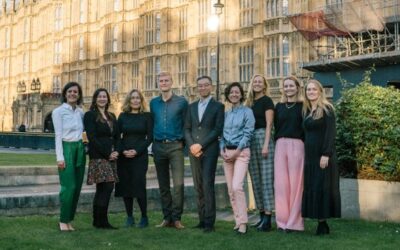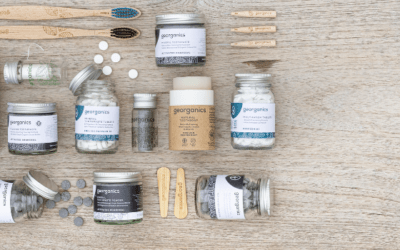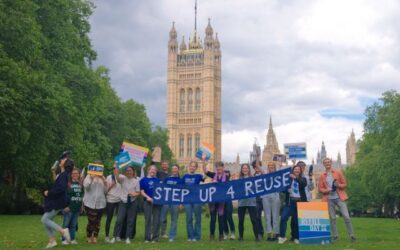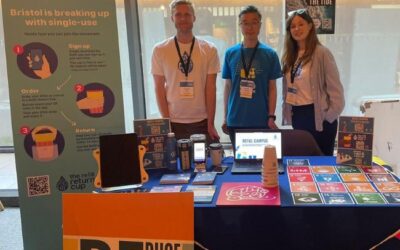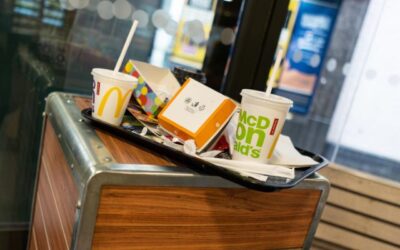Is recycling the answer?
We can’t recycle our way out of our plastic problem
Could this be the solution to reducing plastic pollution?
Over the last few years, it’s become increasingly clear that we can’t recycle ourselves out of our ongoing plastic problem. In fact, the current recycling system for plastics is actually one of the major contributors to plastic pollution around the world.
From their citizen-science research of UK households counting up their plastics for 1 week, the Big Plastic Count identified that nearly 100 billion pieces of plastic packaging are thrown away by UK households every year, and just 12% recycled in the UK. It also revealed that 88% our household waste is being burnt, buried and dumped overseas.
At City to Sea, we’re committed to preventing plastic pollution at source – reducing the need for recycling by advocating reuse and providing practical alternatives to cut back on plastic.
WHY RECYCLING PLASTIC IS so HARD?
For some products, recycling is an effective solution. Aluminium cans and glass, are infinitely recyclable and can be reprocessed in the UK. But for plastics, it’s a very different story.
For a start, there are so many types of plastic it makes it hard to sort correctly. We end up mixing recyclable and non-recyclable plastics in the same box, which sadly means they then have to be sorted again, which not all collectors do, impacting the value and recyclability of the plastic when it’s resold. This can lead to low quality mixed plastics being shipped abroad and the non-recyclable plastics being dumped or burned.
Most people believe that putting their plastic in the recycling bin each week is helping the environment. We try our best to recycle plastic – but the many different ways in which recycling is collected by councils across the UK has left us all a bit confused over what can be recycled and what can’t. Read our essential guide to recycling for more information on recycling logos and what they mean.
WHAT HAPPENS TO OUR PLASTIC WASTE?
We only reprocess 1/3rd of our plastic recycling in the UK, so once plastic waste enters the system, it is sorted and then put up for sale on the international commodities market to be shipped around the world. When this happens, there are a number of different factors that impact where this ends up. Things like, how many types of plastic it includes, how dirty they are, and the reputation of the waste handler.
GOOD QUALITY
If the quality is good enough, the plastics are recycled back into plastic bottles (PET and HDPE). They can also be re-purposed, this often means downcycling them into plastic furniture, drain pipes or fleece clothing. Sure, this doesn’t sound too bad, BUT it this does mean these items then can’t be recycled afterwards.
Poor quality
If the quality is poor, the plastics that have a value are extracted, but the rest gets burnt or dumped.
And, if they’re bought via unethical reprocessors in countries where environmental laws are lax, this dumped and incinerated waste can end up in the local environment, contaminating rivers and making its way to the sea.
Historically, China is where most of the world’s plastic has ended up. It’s no coincidence that more than half of all the plastic pollution carried from the rivers to the ocean comes from the Yangtze. But at the end of 2017 China closed its doors to the most contaminated loads, putting the burden back on the rest of the world. UK plastics have been found dumped in Malaysia, Turkey and Poland, over the last few years.
What about PACKAGING MADE FROM RECYCLED plastic?
Historically, virgin plastic has been cheaper than recycled plastic, meaning there had been little demand for things like plastic bottles to be turned back into bottles. But since the ‘Blue Planet effect’ has taken hold, manufacturers and producers have started to increase the recycled content in their products and packaging, with the percentage varying from 10% to Ecover with 100% recycled content.
This recycled plastic content can come from curbside recycling, or alternatively some companies, like Lidl, are working to capture ‘ocean-bound’ plastics – plastics collected within 30 miles of oceans or major waterways in South-East Asian regions.
Schemes to encourage plastics recycling are part of many Government strategies including the UK Governments Waste and Resources Strategy which is proposing a tax for companies that don’t have a minimum of 30% recycled content in their plastics.
WHAT DOES THE FUTURE HOLD FOR RECYCLING AND PLASTIC?
Whilst governments and environmental agencies investigate the issues of the plastics recycling industry around the world. The obvious solution to our plastic problem is to produce and use less of it. Sounds simple right?
Voluntary initiatives like the UK Plastics Pact and The New Plastics Economy Global Commitment also keep the pressure on big brands and producers to create a more ‘circular economy’.
At City to Sea, we are most excited by projects that move beyond recycling, such as reusable coffee cup, returnable and refillable container schemes which are being trialled in the UK and the rest of the world also.
We need to reduce the sheer volume of single-use plastics we use and shift away from our throwaway culture to value the products we have and start prioritising refilling and reusing over recycling.
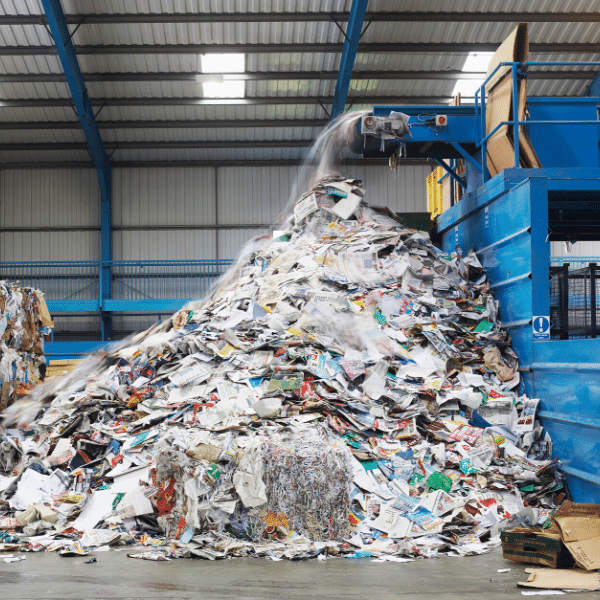
What can you do?
- Start with Refuse, Reduce, Reuse and Refill and only then when you’ve exhausted those options opt for Recycling. Check out our top 12 ways to reduce single-use plastic.
- Where reusables aren’t an option, choose materials that can be recycled, like card, paper, aluminium and glass.
- Sign the Big Plastic Count and Greenpeace petition to Government to fix the UK plastic waste problem
- Seek out plastic-free packaging suppliers or those using recycled content.
- Where plastics are unavoidable ask producers to increase the recycled content to create a proper market for recycled plastics.
GET THE LATEST FROM OUR BLOG
Chew Plants Not Plastic
Chew Plants Not PlasticA Call to Ban Plastic-Based Chewing GumDid you know most chewing gum contains plastic? Yes, that piece of gum in your mouth is actually made from the same plastics found in carrier bags, shampoo bottles, and even car tyres. And we brits chew a...
Taking the Reuse Manifesto to Parliament
Taking the Reuse manifesto to parliamentWhat is the City to Sea team doing at Westminster…again? City to Sea, CEO Jane Martin explains how we took our Reuse Manifesto to the Houses of Paliament.One of the great things about stepping up as CEO of mighty campaigning...
Making Waves Against Plastic Pollution with Georganics this Green Friday
Making waves against plastic pollution with Georganics this Green FridayMeet our partners leading the transition from single-use to reuse - The plastic problemPlastic pollution is one of today’s biggest environmental challenges, with more single-use plastic being...
Calling for Policy Change
Calling for policy changewhat we’ve been up to in 2024Read about our work calling for legislative change to take action on plastic pollution! At City to Sea, we have a history of calling for policy change through our campaigns and advocacy work – with record...
Plastic Free University
Plastic-Free UniversityWhether you’re a fresher or returning to uni, our top tips for reducing single-use plastic – and saving money - will help you start the new term As a student heading to university, there’s a lot to think about—meeting new people, finding your...
Single Use Plastic Ban in Dine-in Settings
The EU is banning single-use plastic in cafesit’s our #TimeToKetchup The EU is banning single-use plastic packaging in cafes and restaurants by 2030. The UK hasn’t even started studying this idea. We think it’s #TimeToKetchupEarlier this year, we launched a new...



